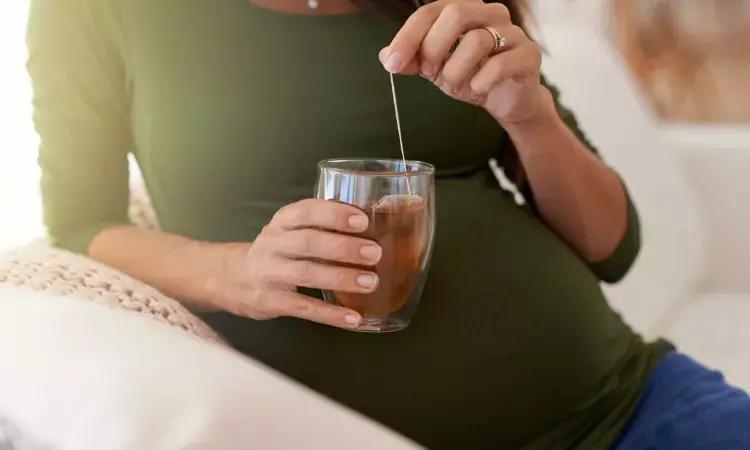No Effect Of Caffeine Consumption On Pregnancy Or Live Birth Rate After Fertility Treatments In Women
- byDoctor News Daily Team
- 15 July, 2025
- 0 Comments
- 0 Mins

China: In a recent study published in Acta Obstetricia et Gynecologica Scandinavica, the researchers found no association between caffeine consumption and pregnancy or live birth rate of fertility treatments in women (in vitro fertilization (IVF)/intracytoplasmic sperm injection (ICSI)).
The study further revealed that women's alcohol consumption was linked with decreased pregnancy rate after treatments in cases where weekly consumption was greater than 84 g (approximately 7 standard drinks).
Also, men's alcohol consumption was associated with a decreased live birth rate after fertility treatments in women when weekly consumption was greater than 84 g.
The analysis included all relevant studies published before July 15, 2022. A total of 7 studies on caffeine consumption and 9 studies on alcohol consumption were included, with a total of 26,922 women and/or their spouses who underwent fertility treatment.
Compared with abstainers, the chance of achieving a pregnancy after fertility treatment decreased by 7% for women who consumed 84 g of alcohol per week, and the chance of partners achieving a live birth decreased by 9% for men who consumed 84 g of alcohol per week.
The study led to the following findings:
The systematic review included twelve studies on caffeine consumption and 14 studies on alcohol consumption, of which seven and nine were eligible for the meta-analysis. These studies included 26 922 women and/or their spouses who underwent IVF/ICSI treatment.
Women's and men's caffeine consumption was not significantly associated with the pregnancy rate and the live birth rate of IVF/ICSI.
Maternal alcohol consumption was negatively associated with pregnancy after IVF/ICSI treatment.
Paternal alcohol consumption was negatively associated with partner's live birth after IVF/ICSI treatment.
Compared with abstainers, the chance of achieving a pregnancy after IVF/ICSI treatment decreased by 7% for women who consumed 84 g alcohol per week, and the chance of partners achieving a live birth decreased by 9% for men who consumed 84 g alcohol per week.
"Couples should be aware that some modifiable lifestyle factors such as drinking habits may affect their fertility treatment outcomes. But how these factors impact the reproductive system still needs more research to elucidate," said corresponding author Yufeng Li, MD, of Tongji Hospital, in China.
Reference:
Wentao Rao,Yuying Li,Nijie Li,Qingyun Yao,Yufeng Li First published: 19 October 2022 https://doi.org/10.1111/aogs.14464
Disclaimer: This website is designed for healthcare professionals and serves solely for informational purposes.
The content provided should not be interpreted as medical advice, diagnosis, treatment recommendations, prescriptions, or endorsements of specific medical practices. It is not a replacement for professional medical consultation or the expertise of a licensed healthcare provider.
Given the ever-evolving nature of medical science, we strive to keep our information accurate and up to date. However, we do not guarantee the completeness or accuracy of the content.
If you come across any inconsistencies, please reach out to us at
admin@doctornewsdaily.com.
We do not support or endorse medical opinions, treatments, or recommendations that contradict the advice of qualified healthcare professionals.
By using this website, you agree to our
Terms of Use,
Privacy Policy, and
Advertisement Policy.
For further details, please review our
Full Disclaimer.
Recent News
Eli Lilly plans to build new USD 3 billion facilit...
- 04 November, 2025
Rajkot Maternity Hospital CCTV Leak: How a simple...
- 04 November, 2025
Gland Pharma profit rises 12 percent to Rs 184 cro...
- 04 November, 2025
AIIMS Delhi doctors told to use Hindi in prescript...
- 04 November, 2025
Daily Newsletter
Get all the top stories from Blogs to keep track.


0 Comments
Post a comment
No comments yet. Be the first to comment!